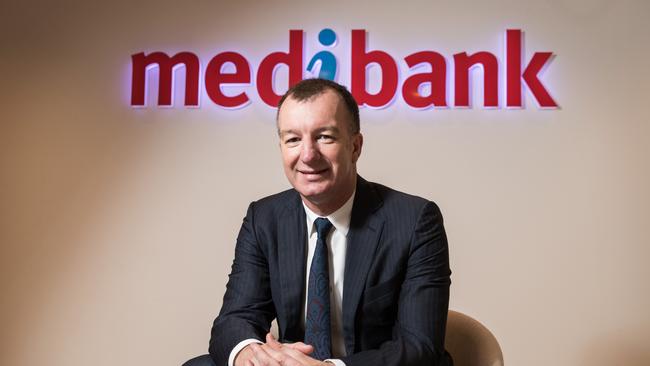Virtual health here to stay says Medibank as it invests $10m in start-up, Medinet
Medibank plans to take a minority stake in Medinet to tackle Australia’s “disjointed health system” as it looks to invest in the booming virtual health arena.

Australia’s biggest health fund Medibank is doubling down on virtual health, investing $10m in a start-up that allows video and audio GP consultations, as well as door-to-door delivery of prescription medication.
Medibank will take a minority stake in Medinet – launched in 2019 before the Covid-19 pandemic catapulted telehealth into the mainstream – and deploy its services to policyholders as part of its preventative health arsenal.
About 10,000 people use Medinet services a day, ranking in the top five most downloaded health apps in Australia.
Medibank group executive – CEO health services, Andrew Wilson, said the $10m investment will allow Medinet to further scale and develop its technology, reaching more patients.
It comes as Medibank has been unleashing its balance sheet to secure a number of deals, which include taking minority stakes in short-stay hospitals in an effort to rein in out-of-pocket costs.
Dr Wilson said Australia’s health system was disjointed and platforms such as Medinet’s created an “enormous opportunity to better connect different parts of the health ecosystem”.
“It has huge potential as an enabler for better primary care. It’s a really big cornerstone of how do we get better and better health outcomes, better preventative health.”
Medinet connects patients with GPs 24-7, with consultations performed via its app, available on android and iOS devices, over video, audio or chat. It also digitises specialist and pathology referrals as well as arranges for the fulfilment and delivery of prescription medications.
But Dr Wilson says virtual health is not for everyone and all conditions, therefore it won’t replace face-to-face GP consultations.
“There are many patients that will continue to prefer to see their doctor face-to-face 100 per cent of the time, but there are a lot of people that don‘t,” said Dr Wilson, highlighting Deloitte research, which this year found 70 per cent of Australians were willing to use virtual health services.
“And so it‘s really providing an additional choice for patients to get access to care when they need it, how they need it.”
Medibank particularly views door-to-door delivery of prescriptions as a vital preventative health tool.
Australia has a high non-adherence rate of prescription medication. A study published in the Australian Journal of General Practice in 2018 revealed 49 per cent of older people with, on average, three chronic diseases, did not take their medication all the time. This places greater pressure on the health system in managing people with multiple chronic conditions.
“It is important for prescribers to regularly ask patients about their medication adherence and, if necessary, to discuss strategies for promoting this,” the study found.
“Connecting GPs with the medication management skills of pharmacists might address this striking unmet clinical need.”
Already, several health start-ups have sought to fill this gap in the health system. Melbourne-based Medmate has turned to the gig economy, partnering with food delivery giant DoorDash, to digitise and automatically dispatch prescription medication.
For Medibank, it comes as health insurers have come under greater pressure to step up their funding across Australia’s health system after the sector overall generated a record profit of $1.8bn last year.
For profit and not-for-profit insurers have increasingly been investing in healthcare providers to make private care more affordable. In January, Perth-headquartered health insurer HBF — which has been aggressively expanding across the east coast — acquired Australia’s third-biggest physiotherapist group, Life Ready, for an undisclosed sum.
That followed HBF securing a 10 per cent slice of ASX-listed dental group Pacific Smiles for $41.9m in December. Meanwhile Bupa, has long operated dental and optical services, and Australia’s biggest private hospital group Ramsay also owns a community pharmacy division.
But not all insurers believe making direct investments or taking out ownership stakes is necessary, forging partnerships with healthcare providers instead to better achieve national scale.
“It‘s horses for courses, to be honest. We’re doing both,” Dr Wilson said.
“We believe that making active investments – and we‘re an active investor, we’re not a passive investor – that allows us to give more value but actually allows us to help the business more directly by injecting capital.
“But it’s not just capital, being able to, if they need help in various ways, being (being able to assist with) technology or other kind of other support functions.”
Medibank is already using Medinet’s digital platform to connect international students to an online network of GPs. This service is integrated into both the Medibank and ahm apps used by these students to help them access GP consultations in a variety of languages.



